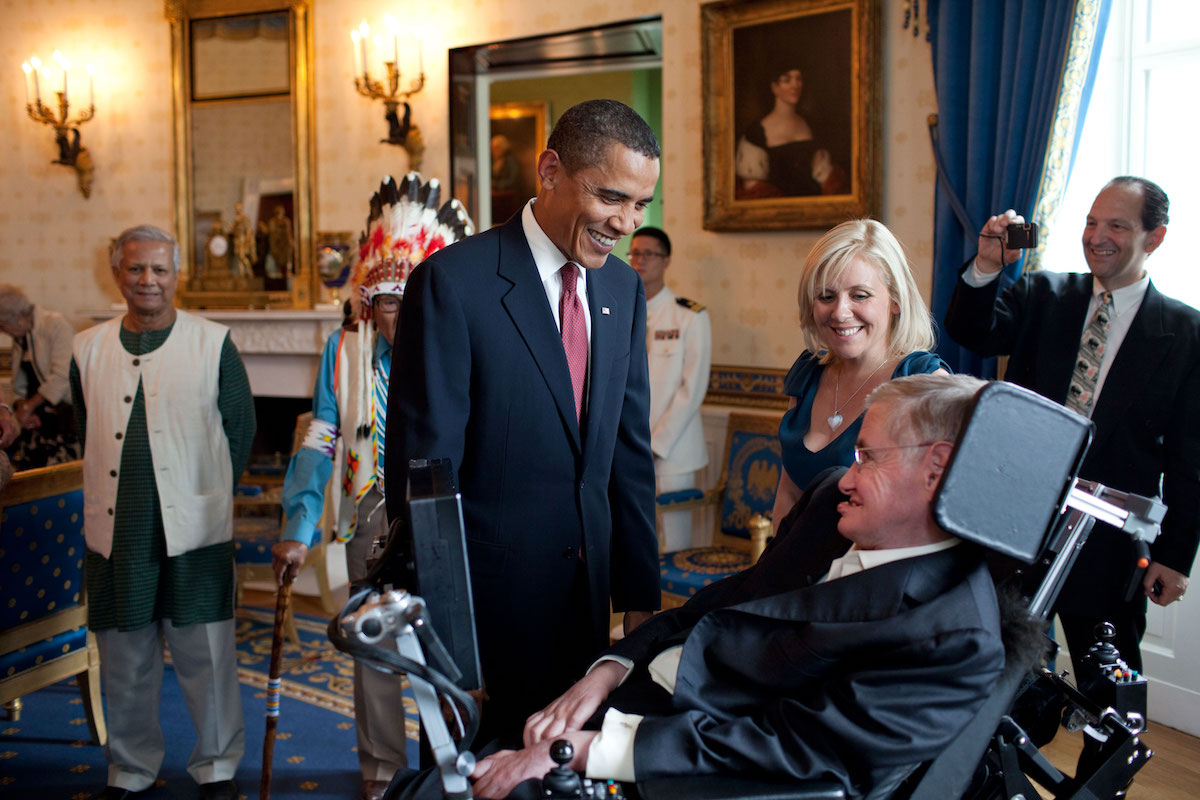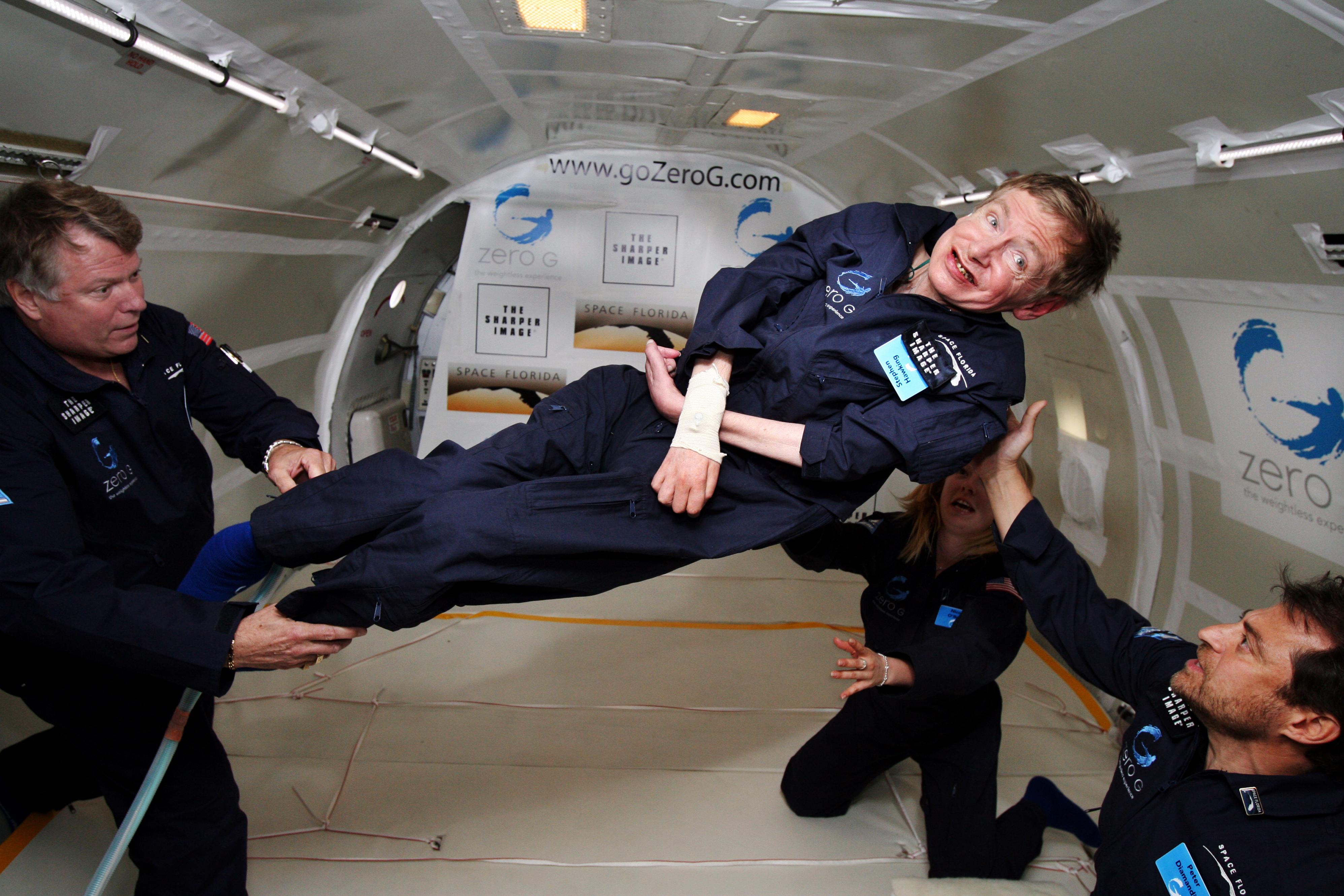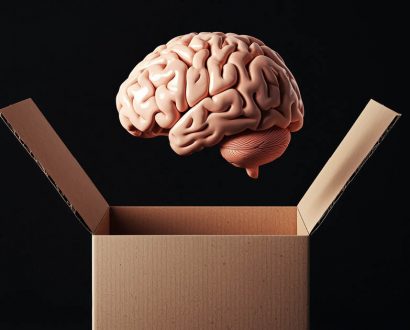Stephen Hawking, renowned theoretical physicist and author, died peacefully on 14 March 2018, aged 76.
He is remembered for his towering intellect, his keen sense of humour and his morality.
Hawking began his academic life at Oxford in 1959, aged 17. After receiving his bachelor’s degree with first-class honours, he undertook graduate work at Cambridge in 1962, studying cosmology and general relativity.
Shortly after that, he was diagnosed with motor neurone disease and given two years to live. However, he went on to complete his studies, and his thesis was well-received.
Over the course of many years, the debilitating nature of his condition left him unable to move or communicate without considerable assistance. Despite this, he spent his life revolutionising the fields of cosmology and theoretical physics.

He also authored many successful books, such as A Brief History of Time, which spent five years on London’s Sunday Times bestseller list and has sold millions of copies.
Some of his most famous theories include the idea that the universe began as a singularity, and the existence of energy emitted by shrinking black holes (known as Hawking radiation).
Along with figures such as noted entrepreneur Elon Musk, Hawking spent many of his later years discussing the necessity of extra-terrestrial exploration and colonisation. He believed humanity would have no future without it.
“If humanity is to continue for another million years,” he said, “Our future lies in boldly going where no one else has gone before.”
If humanity is to continue for another million years, our future lies in boldly going where no one else has gone before.
Since then, numerous other countries and organisations have worked towards this – most famously, Musk’s SpaceX.
Meanwhile, China, the US, India and many European nations are starting another space race, attempting to reach the Moon and Mars.
Hawking also often discussed the potential of AI and machine learning, saying in 2016: “I believe there is no deep difference between what can be achieved by a biological brain and what can be achieved by a computer.
“It therefore follows that computers can, in theory, emulate human intelligence — and exceed it.”

Computers can, in theory, emulate human intelligence — and exceed it.
He was, however, cautious about such a future.
He also warned of industry automation, believing that it would bring great disruption to the economy.
“The automation of factories has already decimated jobs in traditional manufacturing, and the rise of artificial intelligence is likely to extend this job destruction deep into the middle classes, with only the most caring, creative or supervisory roles remaining.”
One of his last comments on the subject offered hope, mixed with further caution:
“Everyone can enjoy a life of luxurious leisure if the machine-produced wealth is shared, or most people can end up miserably poor if the machine-owners successfully lobby against wealth redistribution.
“So far, the trend seems to be towards the second option, with technology driving ever-increasing inequality.”
Read more about the extraordinary life of Stephen Hawking.







